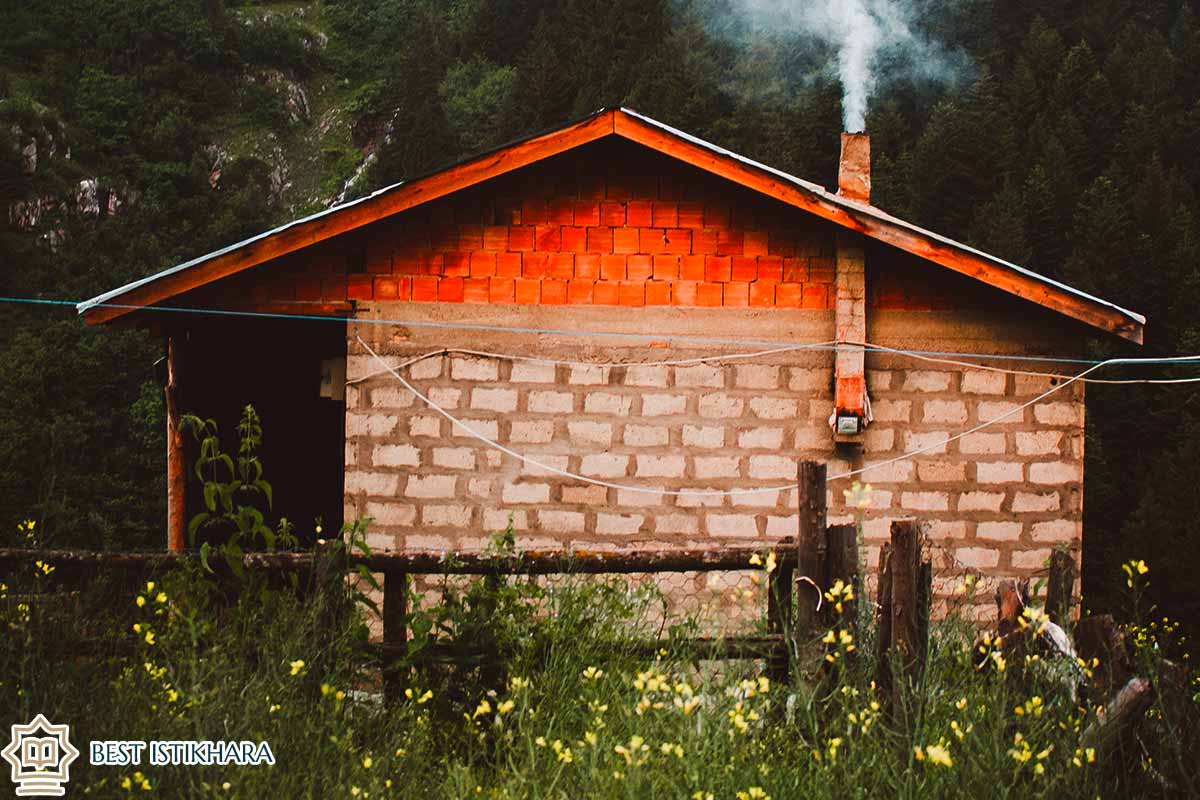Dreams hold a special significance in Islam, often viewed as glimpses into the spiritual realm or messages from the Divine. Among the myriad of dream themes, one that resonates deeply with many is the vision of one’s childhood home. This symbol often evokes powerful emotions and memories, but what does it signify in the context of Islamic dream interpretation? Delving into classical sources and scholars’ insights, we’ll explore the meanings and nuances associated with dreams of a childhood home and their place in Islamic tradition. If you want to read more about this topic, follow the dream interpretation in Islam.
What Does Dreaming of a Childhood Home Mean in Islam?
While interpretations can vary based on the specific details of the dream and the emotions experienced by the dreamer, here are some general interpretations regarding dreaming of one’s childhood home in Islam:
- Return to Roots: Dreaming of a childhood home can indicate a desire to return to one’s roots, whether that means one’s origin, culture, traditions, or foundational beliefs. It might suggest a yearning for simpler times or the purity of childhood innocence.
- Seeking Comfort and Security: Homes, especially those from childhood, are often associated with feelings of safety, comfort, and security. Dreaming of such a place might indicate a desire for protection or a need to find solace during trying times.
- Unresolved Issues: The childhood home can symbolize past experiences or unresolved issues from one’s early life. The dream could be nudging the individual to address or reflect upon these matters.
- Nostalgia and Longing: Such a dream might represent feelings of nostalgia, longing for memories, or wishing to reconnect with family and loved ones.
- Guidance on Life’s Journey: In some interpretations, the childhood home can serve as a reminder of one’s initial life goals or spiritual path, suggesting that the dreamer may need to realign or reassess their current trajectory.
- Emotional and Spiritual State: The condition of the childhood home in the dream (e.g., if it’s in ruins, vibrant, or as one remembers it) can reflect the dreamer’s emotional or spiritual state.
Difference Between Dreaming of Current Home vs. Childhood Home in Islam
Dream interpretation in Islam is a nuanced subject, and the meanings of dreams can vary based on individual circumstances, emotions felt during the dream, and other symbols present. However, in a general sense, dreaming about one’s current home versus childhood home can have different implications:
Dreaming of Current Home:
- Reflection of Current State: The current home often mirrors your present emotions, challenges, joys, and overall life circumstances. If the house is in chaos, it might signify current stresses, whereas a peaceful home could indicate contentment.
- Immediate Concerns: Dreams of one’s current residence might highlight concerns or issues directly related to the present moment, like familial relationships, financial worries, or personal security.
- Personal Growth: Depending on the state of the home, it could indicate personal development, achievements, or areas that need attention in one’s current phase of life.
Dreaming of Childhood Home:
- Return to Origins: As previously mentioned, a childhood home often signifies a yearning for simpler times or a desire to reconnect with foundational beliefs, traditions, or cultural roots.
- Past Memories and Experiences: This can indicate unresolved issues or memories from the past that might be affecting the dreamer’s current life.
- Seeking Comfort: Childhood homes are often associated with safety, protection, and warmth. Dreaming of such places might indicate a need for comfort during trying times.
- Life Lessons: It can also serve as a reminder of lessons learned early in life or values instilled during one’s formative years.
In both cases, the condition and feeling of the home in the dream (whether it feels inviting, hostile, familiar, or strange) play a significant role in the interpretation. While these general interpretations provide some insights, dream interpretation in Islam often requires a deeper understanding of individual circumstances. Consulting knowledgeable scholars or trusted Islamic sources can offer a more tailored perspective.
Conclusion
Dreams, in the tapestry of Islam, serve as intricate threads weaving insights into our lives. The vision of one’s childhood home, laden with nostalgia and profound symbolism, beckons a deeper introspection. Such dreams bridge the chasm between past innocence and present realities, urging reflection on origins, unresolved emotions, and spiritual paths. While general interpretations offer guidance, individual circumstances shape the dream’s essence. In the realm of Islamic dream interpretation, seeking knowledgeable counsel ensures that these nocturnal messages illuminate, rather than mystify, the path ahead. If you want to read more about dreaming of house in Islam, click here.






